Copyright 2009 by
The Curators of the University of Missouri
University of Missouri Press, Columbia, Missouri 65201
Printed and bound in the United States of America
All rights reserved
5 4 3 2 1 13 12 11 10 09
Library of Congress Cataloging-in-Publication Data
Siemers, David J.
Presidents and political thought / David J. Siemers.
p. cm.
Includes bibliographical references and index.
ISBN 978-0-8262-1866-7 (hardcover : alk. paper) ISBN 978-0-8262-1878-0 (pbk. : alk. paper) ISBN 978-0-8262-7205-8 (electronic)
1. PresidentsUnited States. 2. United StatesPolitics and government. 3. Political scienceUnited StatesHistory. I. Title.
JK516.S54 2009
320.092273dc22
2009032145

This paper meets the requirements of the American National Standard for Permanence of Paper for Printed Library Materials, Z39.48, 1984.
Composition and design: Aaron Lueders
Printing and binding: Integrated Book Technologies, Inc.
Typefaces: Palatino, Nimbus Roman No9, Poppi-Exquisit
Preface
WHAT WE REALLY SHOULD KNOW ABOUT BARACK OBAMA
We hold these truths to be self-evident, that all men are created equal, that they are endowed by their Creator with certain inalienable Rights, that among these are Life, Liberty, and the pursuit of Happiness. Those simple words are our starting point as Americans; they describe not only the foundation of our government but the substance of our common creed. Not every American may be able to recite them; few, if asked, could trace the genesis of the Declaration of Independence to its roots in eighteenth-century liberal and republican thought. But the essential idea behind the Declaration... orients us, sets our course, each and every day.
Barack Obama, The Audacity of Hope
It is mistaken to say that America has got along nicely without political philosophizing.... this nation, more than any other, is a work of political philosophy.
George F. Will, Statecraft as Soulcraft
The long presidential campaign of 2008 allowed the American people to get acquainted with Barack Obamaat least in a certain sense. We discovered that, as with any human being, many different things have contributed to making Barack Obama who he is. His experience with multiple ethnicities and cultures, in Hawaii and in Indonesia, seemed to have a profound effect on him. So too did his anthropologist mother, who taught her son that there is value in each culture and religion. As described in Obamas autobiographical account Dreams from My Father, a quest to discover more about his absent fathers life and to connect with his African relatives animated his early adulthood. His discovery that churches are the social and spiritual glue of the black community in Chicago transformed his life. In 2008 we got to know these things and with them to know Obama the person, quite well.
Additionally, the media paid a great deal of attention to his positions on issues. Like every other recent presidential-campaign organization, the Obama camp offered up a blizzard of proposals, covering almost every subject about which Americans are concerned. The opposing candidates criticized these proposals, the media scrutinized them, and the American public judged between his suggestions and what the other contenders offered. All this is as it should be. Understanding the candidates personal backgrounds and policy positions are vital to casting an informed vote.
But there is another matter which voters should consider. It is one about which we typically have almost no information. Citizens should know the theories about politics, if any, that a president carries with him or her into the White House. We routinely fail to consider the ideas which unify a candidates thinking. This is like hiring a teacher by looking over lesson plans and a rsum but not bothering to ask about her teaching philosophy. This is akin to a church hiring a pastor on the basis of old sermons and testimony about the spiritual milestones in his or her life but not inquiring about theology. It is like hiring a football coach by looking at game tapes and finding who he coached under but failing to ask about the West Coast offense or other ideas about how to be successful in the sport.
In the vast academic literature on the presidency there is almost nothing about how, in general, presidents ideas have shaped their policies and strategies. There is a literature on presidential personality, on the constraints presidents work under in implementing their agendas, on the bargaining situations they face with Congress and the courts, on how the ebb and flow of political cycles affect their success, on how public opinion impacts the presidency, and on many other subjects. These are worthy lines of inquiry. However, we shy away from discussing a presidents views about politics and how these ideas or theories contribute to what the president proposes and does.
Consider how little we know about Barack Obamas theoretical approach to politics. Obama went to Harvard Law School, but rather than the substance of what he learned there, what we know about those three years is that he became the first African American president of the Harvard Law Review. He was an undergraduate at Occidental College and Columbia University, where he took political science classes. Even attentive students of Obamas life have heard next to nothing about the courses he took as an undergraduate. Did he apply any of the lessons he learned in the halls of higher learning to the jobs that he has subsequently occupied?
Obviously learning about politics is not something that happens only in universities. Have Obamas life experiences given him an understanding of how politics works? Has he been reading about politics in the last twenty-five years? If so, what? Has he been reading books on political theory, a discipline which offers up visions about how politics worksand about how it should work? If so, what has Obama agreed with and what has he disagreed with in this field?
Has Obama thought about how human nature shapes politics? Has he pondered how government institutions should be arranged to help democracy work? What is his attitude about theories of politics themselves? Among all the ink used to explain Barack Obama, only a tiny portion of it has been devoted to examining these matters. Yet Obamas intellectual understandings and his theoretical commitments are arguably more important to know than any particular policy position, because he might bring theory to bear across many issues. Theories may go beyond inspiring policy stances to influence how he understands the presidents role in the constitutional system, and they might frame his approach to the rule of law. In the writings of political theorists he may find ideas and phrases to use in public speeches.
What happened in the 2008 campaign is a microcosm of American presidential history. We have known far less about the intellectual lives and theoretical views of our presidents than we should. A presidents personality, background, and policy preferences are important things to know, but his or her theoretical approach to politics is important to know too. If a presidential candidate has a general orientation toward politics, voters should be aware of what it is. If the candidate lacks any theories about politics, voters should know that as well. Candidates can be asked to explain and justify why they believe in certain theories. If a candidate claims not to have theoretical commitments, the candidate should be asked to explain why it is unimportant or even problematic to have them.

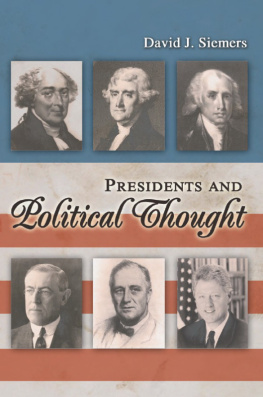
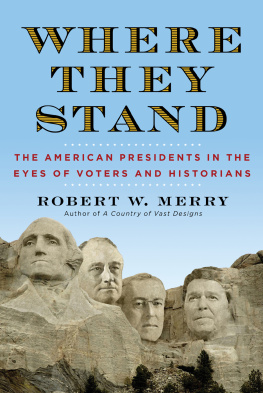
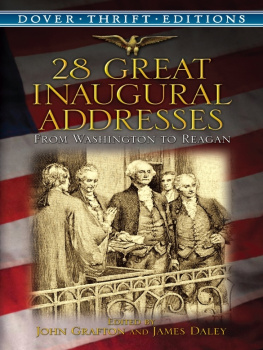

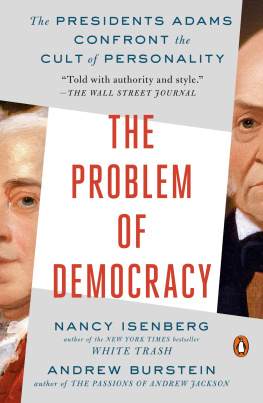
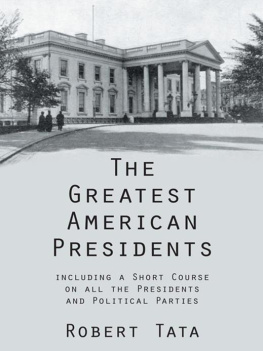
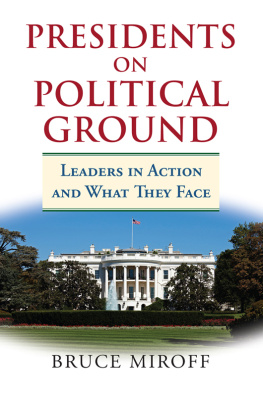
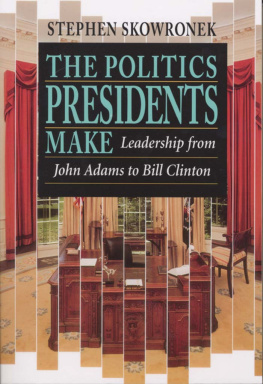
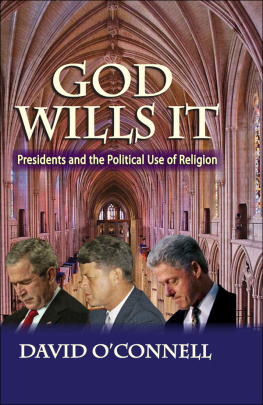
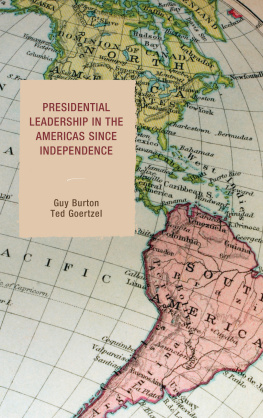
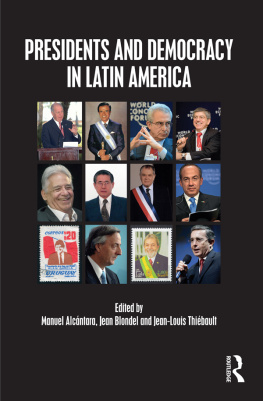
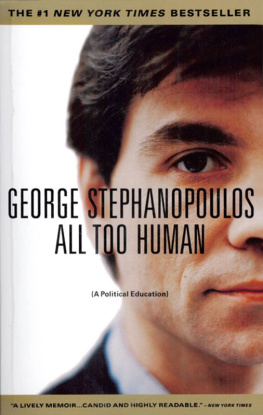
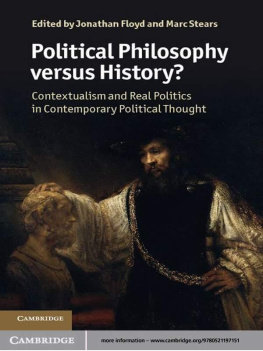
 This paper meets the requirements of the American National Standard for Permanence of Paper for Printed Library Materials, Z39.48, 1984.
This paper meets the requirements of the American National Standard for Permanence of Paper for Printed Library Materials, Z39.48, 1984.